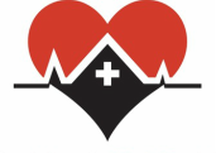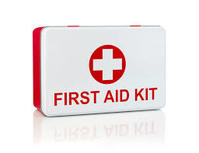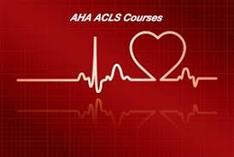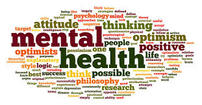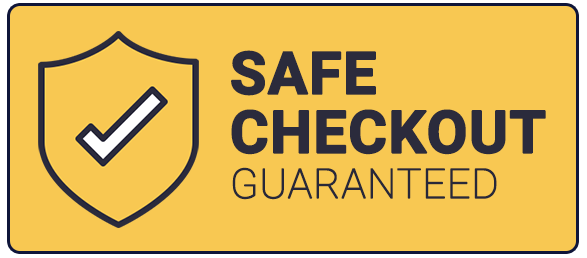|
We all know that medical emergencies can arise in various unexpected locations. The Business Insider recently presented a list of the best first aid kits for the workplace, the home, the car, those on a budget, and for the more experienced first responder.
When choosing a first aid kit, it is important to consider those that might depend on it, where it will be stored and/or carried, and in what situations the likely users might endure an injury or illness. The chosen best overall first aid kit was the First Aid Only All-Purpose First Aid Kit comes with all the basic medical supplies you need for quick diagnostics and the treatments of many maladies. The best kit chosen for the workplace was the Be Smart Get Prepared 250 Piece First Aid Kit which is OSHA and ANSI compliant and covers the first aid needs of up to 50 people, making it perfect for the office. The best first aid kit chosen for the car is the TripWorthy Compact Travel First Aid Kit in your car, truck, or boat, you'll be ready to face minor medical emergencies even when you're miles from home. The Lightning X First Responder First Aid Kit was chosen as the best first aid kit for the more experienced first responder. The Coleman All Purpose Mini First Aid Kit was chosen as the best first aid for those on a budget. Perfect for students, camping enthusiasts, and even those weekend fitness warriors. Check out this article for more detailed information on the prices of these various first kits. http://www.businessinsider.com/best-first-aid-kit/#the-best-first-aid-kit-for-disaster-preparedness-4
Comments
Due to the overwhelming demand; Help-A-Heart CPR will begin offering Advanced Cardiovascular Life Support (ACLS) classes beginning in November 2017.
ACLS entails airway management, accessing veins, interpretation of ECG, applications of emergency pharmacology and early defibrillation with automated external defibrillators. Healthcare providers such as paramedics, doctors, nurses, and respiratory therapists must take a certification class to learn ACLS procedures prior to administering them. The algorithms are complex and should only be carried out by trained medical providers. Managing the airway, analyzing various cardiac rhythms, and understanding what medications should be given are included in the classes. The Advanced Cardiovascular Life Support (ACLS) class also provides the theoretical background to resuscitation as well as explaining the essential resuscitation skills required to manage an adult cardiac arrest– from the time it occurs until post-cardiac care. Advanced Cardiovascular Life Support also discusses ethical and legal issues, record keeping, dealing with bereavement, audit, equipment and training– providing an essential quick reference tool for nurses and health care professionals. The addition of the ACLS course comes with the new requirement of ensuring all American Heart Association’s adult cardiopulmonary resuscitation (CPR) courses are updated in 2019 with the use of new technology. The use of an instrumented directive feedback device in all courses that teach adult CPR skills will be required effective Jan. 31, 2019 to assist participants with becoming proficient when a cardiac emergency occurs. We are excited about offering this certification to our students. Being diagnosed with heart disease or experiencing a heart attack can drastically alter one's life. And, it can be challenging emotionally to make necessary lifestyle changes to live a life that is heart-healthy.
As a Doctoral Candidate in Psychology and also providing AHA Instruction to both providers and Instructors, I am always interested in reading correlations between mental and physical health as well as the causes and prevention. The American Psychological Association (APA) has some wonderful suggestions including the altering of eating habits, managing stress and following the treatment plan prescribed by one's healthcare provider. However, we all know that trying to manage stress can be overwhelming. The APA has suggested that Psychologists can assist individuals people with heart disease find ways to make these lifestyle changes and address reactions such as anxiety and depression. Interestingly, according to the American Heart Association 33 percent of heart attack patients develop some degree of depression. Symptoms of depression like fatigue and feelings of worthlessness can cause people to ignore their treatment and engage in unhealthy behaviors such as overeating or refusing to take medications. Studies show treating depression makes it easier for people with heart disease to follow long-term treatment plans and make appropriate changes to their lifestyle. If you or a family member might be experiencing subtle changes in motivation or enthusiasm for life and have also recently experienced cardiovascular stress; this might be a good time to also seek mental health treatment in order to re-align your life. http://www.apa.org/helpcenter/heart-healthy-lifestyle.aspx |
AuthorDr. Tracy A. Jones is the CEO of Help-A-Heart CPR, LLC and an American Heart Association, ASHI, and American Red Cross Master Program Trainer, Instructor, & AHA Faculty Member located in San Antonio, Texas. Archives
June 2024
Categories |
Help-A-Heart CPR, LLC | 1747 Citadell Plaza Suite 101 | San Antonio, Texas 78209 | (210) 380-5344 | [email protected]
Copyright © Help-A-Heart CPR, LLC 2024
100% Certification Acceptance
We promise your employer, school, or agency will accept the certification card we issue to you. If there is a question of acceptance or validity, simply send us an email at [email protected] with full details. We will reach out to the individual/entity and provide accreditation information. If still there’s a question, we will provide you with a full refund of your class fee. It’s that simple.
We promise your employer, school, or agency will accept the certification card we issue to you. If there is a question of acceptance or validity, simply send us an email at [email protected] with full details. We will reach out to the individual/entity and provide accreditation information. If still there’s a question, we will provide you with a full refund of your class fee. It’s that simple.
|
Communities Served
ALABAMA: Birmingham
ARKANSAS: Fayetteville, Hot Springs, Jonesboro, Little Rock NEW MEXICO: Albuquerque TENNESSEE: Knoxville TEXAS: Amarillo, Arlington, Austin, Bandera, Bastrop, Boerne, Brownsville, Comfort, Converse, Corpus Christi, Dallas/Ft. Worth, Del Rio, Dripping Springs, El Paso, Floresville, Fredericksburg, Georgetown, Harlingen, Houston, Junction, Katy, Kerrville, Kingsville, Kingwood, Laredo, Lubbock, Lufkin, McAllen, Midland, New Braunfels, Odessa, Pleasanton, Round Rock, San Angelo, San Marcos, Schertz, Seguin, Taylor, Temple, Texarkana, Tyler, Universal City, Victoria, Waco, The Woodlands |
Why Choose Help-A-Heart CPR?
1. Flexible Scheduling
2. On and Off Location Training Available 3. Casual, Fun Atmosphere 4. Best Price Guarantee 5. All Instructors are AHA and/or ARC certified 6. 5 Star Google Reviews 7. Blended Learning (Online & Skills Check) Available 8. Meets OSHA & College CPR Requirements 9. Get Certified Within 3-4 Hours 10.Certification Is Good For Two Years 11. Official AHA/ARC/ASHI Training Site 12. High Quality Safety Training! |
